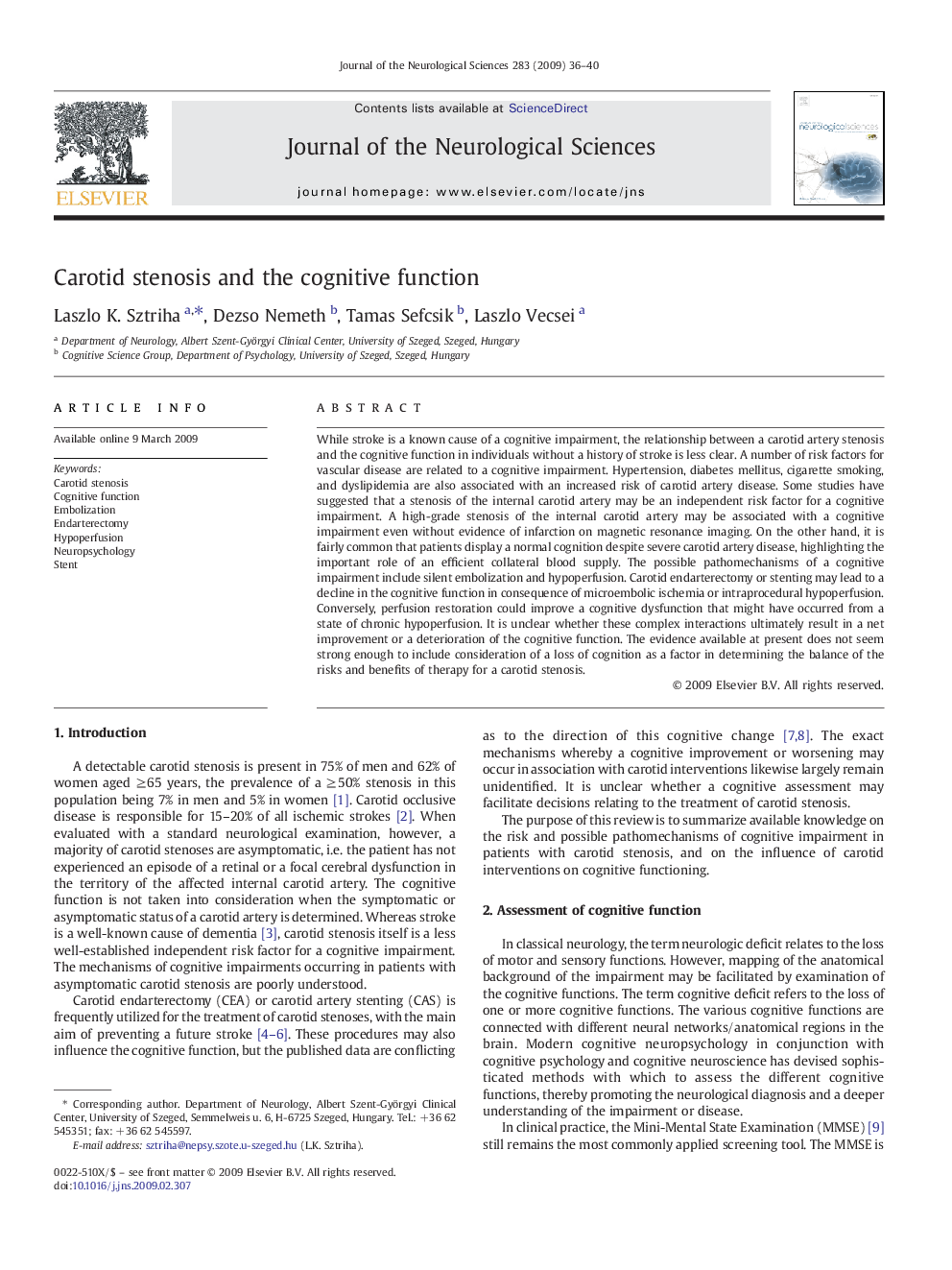| Article ID | Journal | Published Year | Pages | File Type |
|---|---|---|---|---|
| 1915195 | Journal of the Neurological Sciences | 2009 | 5 Pages |
While stroke is a known cause of a cognitive impairment, the relationship between a carotid artery stenosis and the cognitive function in individuals without a history of stroke is less clear. A number of risk factors for vascular disease are related to a cognitive impairment. Hypertension, diabetes mellitus, cigarette smoking, and dyslipidemia are also associated with an increased risk of carotid artery disease. Some studies have suggested that a stenosis of the internal carotid artery may be an independent risk factor for a cognitive impairment. A high-grade stenosis of the internal carotid artery may be associated with a cognitive impairment even without evidence of infarction on magnetic resonance imaging. On the other hand, it is fairly common that patients display a normal cognition despite severe carotid artery disease, highlighting the important role of an efficient collateral blood supply. The possible pathomechanisms of a cognitive impairment include silent embolization and hypoperfusion. Carotid endarterectomy or stenting may lead to a decline in the cognitive function in consequence of microembolic ischemia or intraprocedural hypoperfusion. Conversely, perfusion restoration could improve a cognitive dysfunction that might have occurred from a state of chronic hypoperfusion. It is unclear whether these complex interactions ultimately result in a net improvement or a deterioration of the cognitive function. The evidence available at present does not seem strong enough to include consideration of a loss of cognition as a factor in determining the balance of the risks and benefits of therapy for a carotid stenosis.
